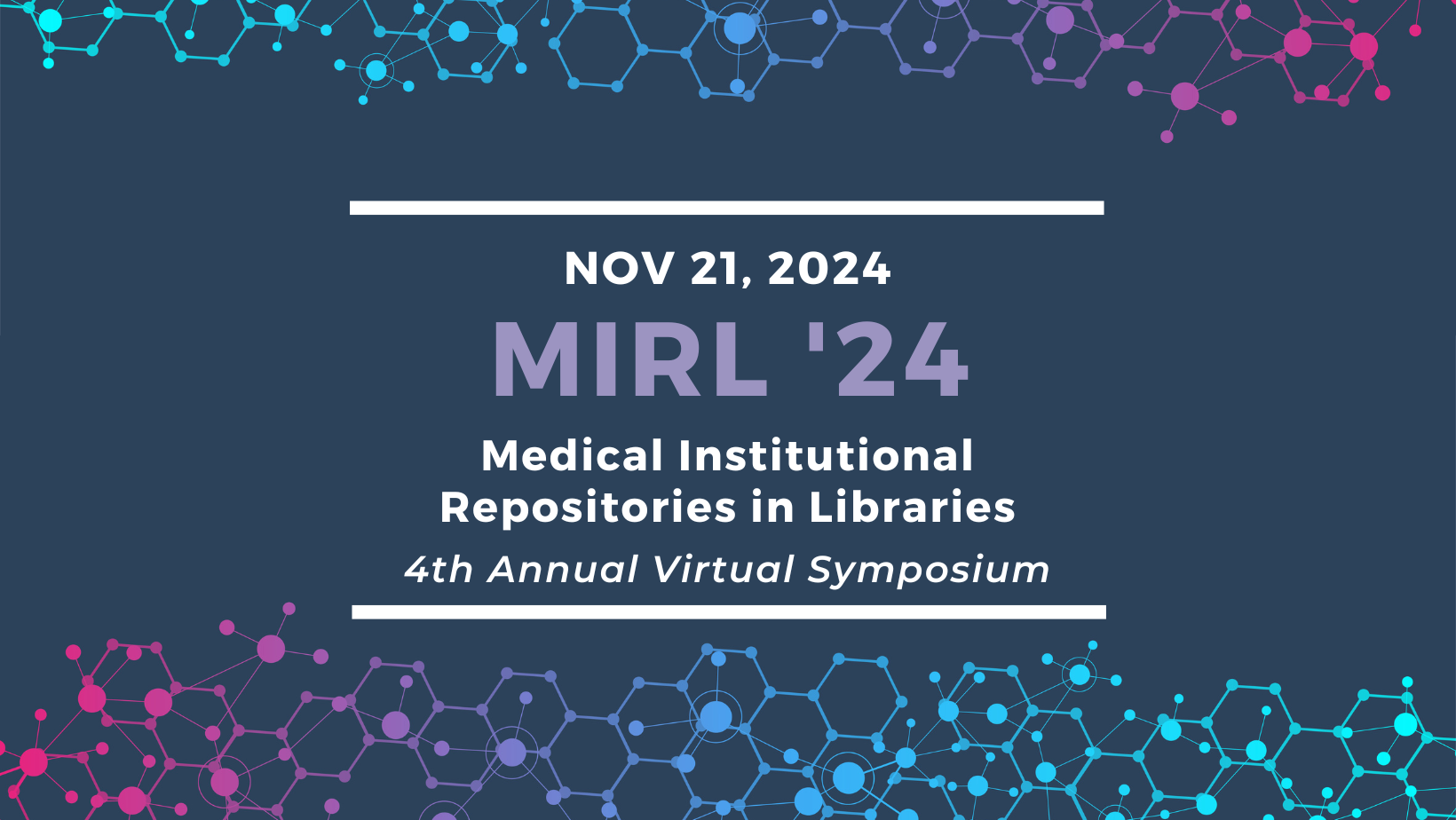Presentation Type
Lightning Talk
Date
2024-11-21
Description
How do academic library IRs support their institutions’ diverse goals? In early 2024, a group of six librarians assembled virtually to explore and reflect on the academic IR community that encompasses specialized libraries, collections, and formats. Group members represented various sectors, including medicine, science, technology, engineering, music, and large university. They were brought together by their common interests and involvement in several repository initiatives, including two virtual symposia, MIRL (https://scholarlycommons.henryford.com/mirl/) and NIRD (https://repository.escholarship.umassmed.edu/pages/nird_about). The motivating purpose was to submit a proposal to the Special Libraries Association (SLA) 2024 annual conference, a venue where not all attendees may be familiar with specialized and open institutional repositories. The proposed poster [doi.org/10.18131/eenwk-ghd21] was accepted and presented at SLA in July 2024 by two of the co-authors. The intervening pre-conference months became a short-term collaboration opportunity that allowed group members to become familiar with each other’s IR environments, and through a self-survey [doi.org/10.18131/mcbn7-2xk60], to explore the diversity in technology, content, users, roles, priorities, and challenges. Highlights were illustrated for a “poster conversation” - common threads and opportunities to spotlight and discuss with SLA conference attendees. Formal network initiatives, such as USRN in the United States, and the European repository network, seek to enhance a vision for repositories working together. This presentation will illustrate how informal discussion of persons across sectors in the IR landscape also can play a role in greater understanding and may lead to future networking or collaboration opportunities.
Keywords
institutional repositories, MIRL, session 3
Rights and Permissions
Copyright © 2024 The Author.
Repository Citation
Kubilius, Ramune, "Developing an IR Venn Diagram: Exploring Diversity and Similarities in Specialized Institutional Repositories– a discussion, a self-survey, and a poster" (2024). Medical Institutional Repositories in Libraries (MIRL) Symposium. 14.
https://scholarlycommons.henryford.com/mirl/2024/program/14
Developing an IR Venn Diagram: Exploring Diversity and Similarities in Specialized Institutional Repositories– a discussion, a self-survey, and a poster
How do academic library IRs support their institutions’ diverse goals? In early 2024, a group of six librarians assembled virtually to explore and reflect on the academic IR community that encompasses specialized libraries, collections, and formats. Group members represented various sectors, including medicine, science, technology, engineering, music, and large university. They were brought together by their common interests and involvement in several repository initiatives, including two virtual symposia, MIRL (https://scholarlycommons.henryford.com/mirl/) and NIRD (https://repository.escholarship.umassmed.edu/pages/nird_about). The motivating purpose was to submit a proposal to the Special Libraries Association (SLA) 2024 annual conference, a venue where not all attendees may be familiar with specialized and open institutional repositories. The proposed poster [doi.org/10.18131/eenwk-ghd21] was accepted and presented at SLA in July 2024 by two of the co-authors. The intervening pre-conference months became a short-term collaboration opportunity that allowed group members to become familiar with each other’s IR environments, and through a self-survey [doi.org/10.18131/mcbn7-2xk60], to explore the diversity in technology, content, users, roles, priorities, and challenges. Highlights were illustrated for a “poster conversation” - common threads and opportunities to spotlight and discuss with SLA conference attendees. Formal network initiatives, such as USRN in the United States, and the European repository network, seek to enhance a vision for repositories working together. This presentation will illustrate how informal discussion of persons across sectors in the IR landscape also can play a role in greater understanding and may lead to future networking or collaboration opportunities.


